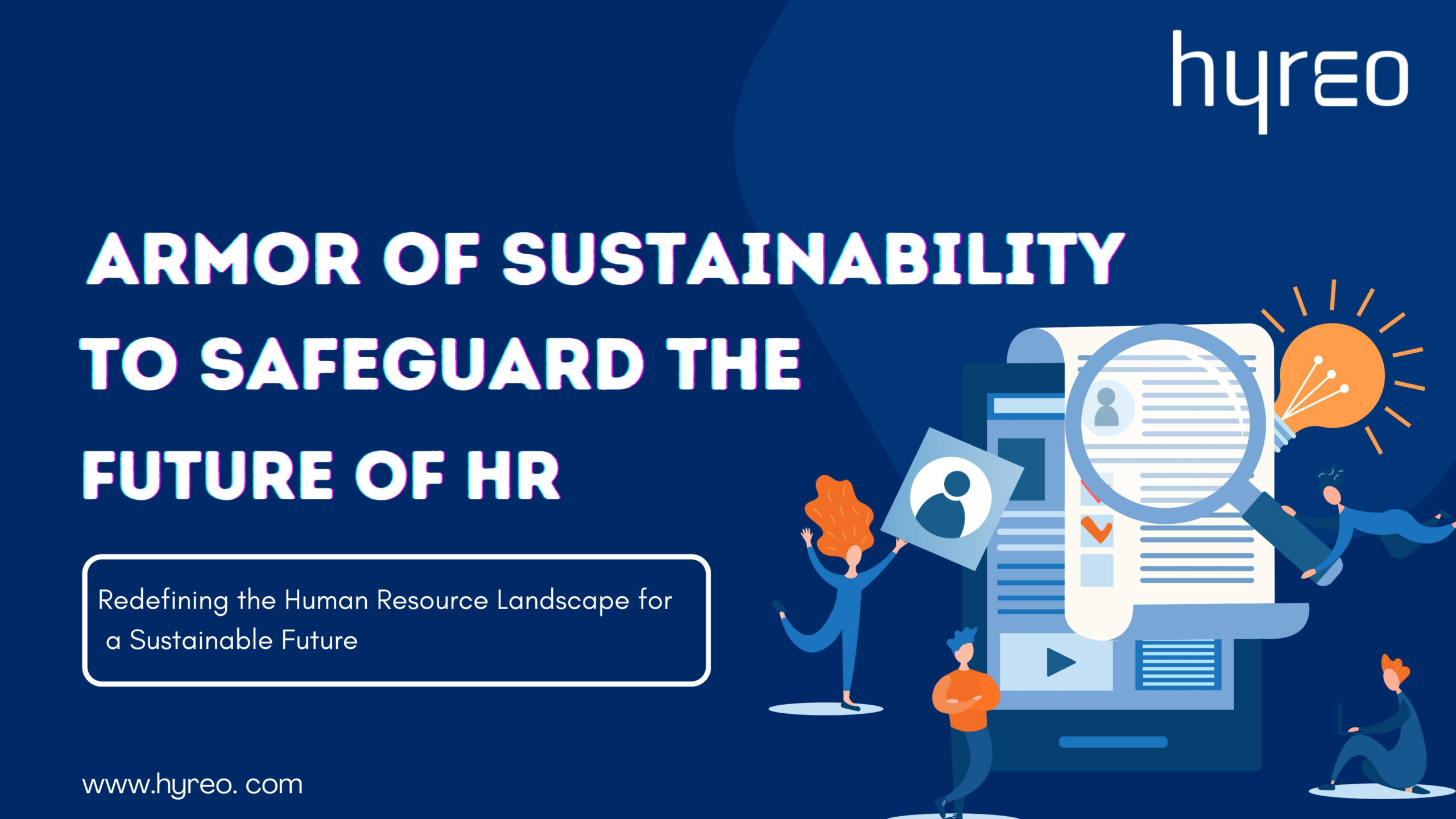Mahatma Gandhi once said, “The future depends on what we do in the present.”
Every subtle stride of change we make today will have its impacts echoed in the coming generations. The HR ecosystem has witnessed uncountable integral transformations come and go throughout the 21st century. Yet, it has not fully fathomed the apparent impact of sustainability in the recruitment landscape, which possesses a massive ability to disrupt the entire organizational framework if not tended to with immense care.
Sustainability in recruitment refers to maintaining a holistic balance in an organization’s economic, environmental, and social aspects over the long term. HR professionals have a pivotal role to play in ensuring overall sustainability since they form the primary bridge that connects employees, employers, and clients – anything and everything that defines the growth of an organization. Taking into account the latest developments in the global work culture in terms of digitalization and remote working, fostering well-versed sustainability strategies has become a rigorous challenge that needs to be immediately addressed by HRs all around the world. In this blog, we will be walking you through the invaluable inferences of HR scholars and proven solutions to implement sustainability in an organization’s present structure.
While SHRM reports highlight the agreeance of 88% of HR professionals as the primary implementers of sustainable policies, Forbes joins the voice, stating how such policies streamline the internal processes to achieve an optimum consistency that brings transparency and trust to the table. The other crucial spectators are also on the same page, demonstrating how recruitment sustainability is a pressing concern that resonates on a global level. Deloitte’s research sheds more light on the advantageous facet of sustainability, reporting a 16% increased productivity level consequent to the execution of successful sustainability programs. From the analytics itself, it is easier to see the underlying interdependence existing between employee well-being and sustainability and how nurturing this tandem could take business growth to a whole new level. While the economic outcomes of a sustainable corporate environment can exceed expectations, one could not simply overlook the social and environmental affluence it presents to the stakeholders, according to Harvard Business Reviews.
It is evident from every angle that the incorporation of sustainability into the organizational culture has substantial perks to offer without any prospects of expenditures that come into the picture. The ultimate challenge lies with HR professionals in embedding sustainable objectives seamlessly into perpetual organizational values and ethics and ensuring flawless functioning to embrace worthwhile outcomes in the near future.
The smart ways in which sustainable values can be integrated with the cultural spectrum of a workplace can vary from organization to organization. Nevertheless, some of the proven demonstrations of nesting sustainability into the HR ecosystem have gained commendable popularity worldwide, owing to the incredible employee engagement and lasting gains that accompanied such transformation.
Adopting a Circular HR Paradigm
A mere shift from a traditional HR paradigm to a modern one is hardly adequate to incorporate sustainability. This is where Circular HR becomes crucial. In a Circular HR framework, employees’ skills, efficiency, flexibility, and adaptability are relentlessly put to the test from time to time through consistent learning opportunities, turning them into highly resourceful contributors in the end. According to Jaz da Silva, a Human Resource Specialist on LinkedIn, the adoption of a Circular HR model presents an effective way of recycling existing resources and establishing role fluidity within the workforce. She also emphasizes the importance of allowing reintegration strategies to incorporate the talents that left organizations due to inevitable career breaks, to build a sustainable talent pool.
Green Initiatives in the HR landscape
A smooth leap into the greener side of HR terrain demands a level-up in current HR roles and responsibilities. Green HR pinpoints the heightened need for redefining HRM policies to bring developmental and execution activities under the secure umbrella of sustainability. Such initiatives create thriving workplaces where employees are nurtured and supported generously and encouraged to preserve sustainability values throughout. According to GetOnTop, European businesses have already reaped substantial benefits through Green HR programs.
Ensuring Sustainability at the Candidate level
Growth begins from the root. While diverse sustainable policies can be established within the present workforce environment, nurturing sustainable values at the candidate level can be more impactful as it bridges the gap that hinders employees from cherishing sustainable goals beforehand. Frequent incorporation of sustainability-oriented skills in job descriptions will not only attract candidates with sustainable qualities but also encourage the aspirants to recognize them as inevitable aspects of better career opportunities. Thus, HR professionals can ensure sustainability at the root level and foster a sustainable-rich employee environment.
The wise words of Albert Einstein, “We cannot solve our problems with the same thinking we used when we created them.”, could not be more appropriate for the context we’re in.
Aside from social and ethical balance, sustainability initiatives are crucial in building a company’s reputation, saving valuable resources, establishing regulatory compliance, gaining a competitive edge and equipping for long-term success and growth. Moreover, sustainable practices can be utilized by HR to evaluate employee performance and implement subsequent training programs to improve the over-all employee productivity. In conclusion, every organization with futuristic visions should consider integrating HR practices that remain encompassed in the sustainability safeguard, the future-of-work demands. This way, we can rest assured that the unpredictable future of the coming generations is in the safe hands of the harmonious existence emanating from advancing technology and progressing sustainability. At Hyreo, we help recruiters embrace Green HR practices by streamlining the entire recruitment process through Smart Automation, Data Analytics, and Artificial Intelligence, thus bringing clarity to their perspectives and objectives regarding sustainability.
We hope you have gained some key insights through this blog to establish sustainable actions in your organization. Remember, every minor step we take toward sustainability has a positive butterfly effect!
#HR #Sustainability #FutureOfWork #GreenHR



